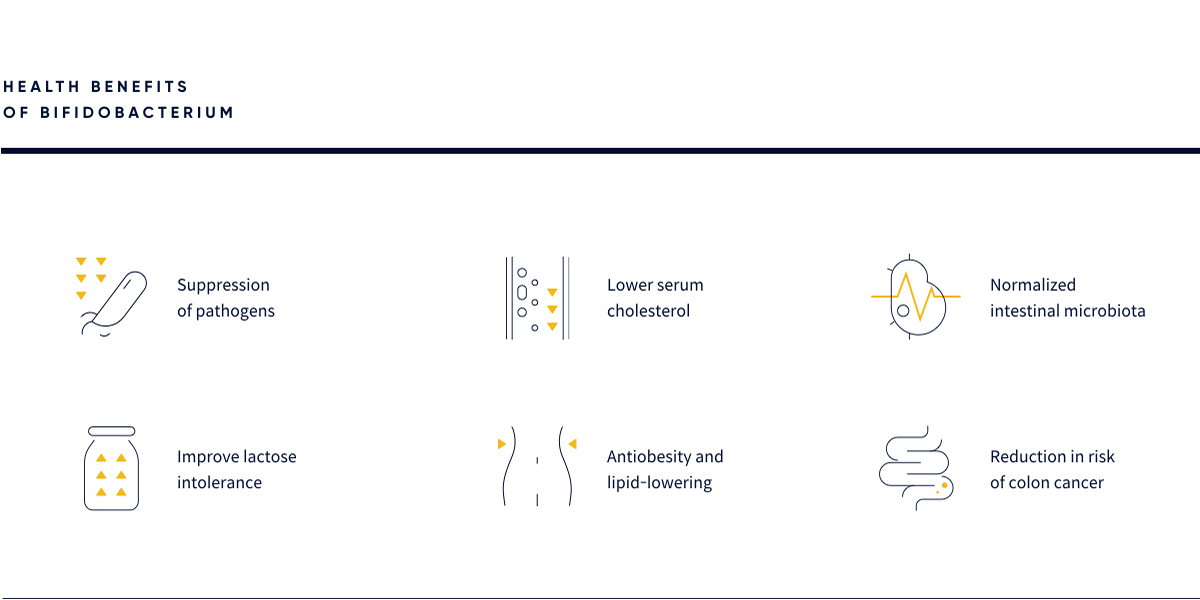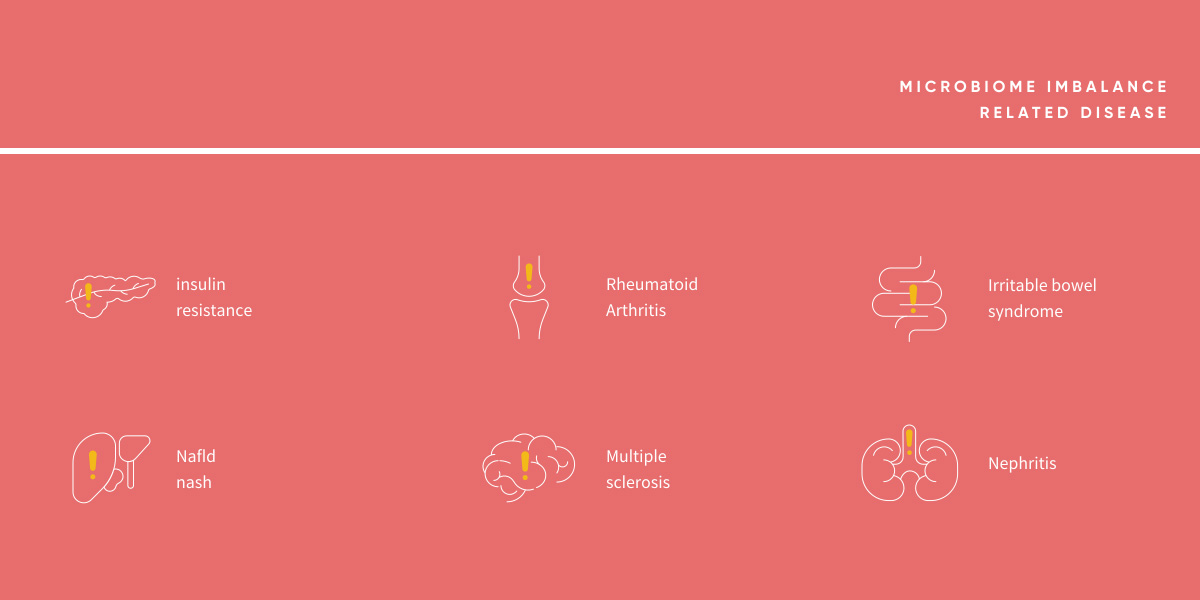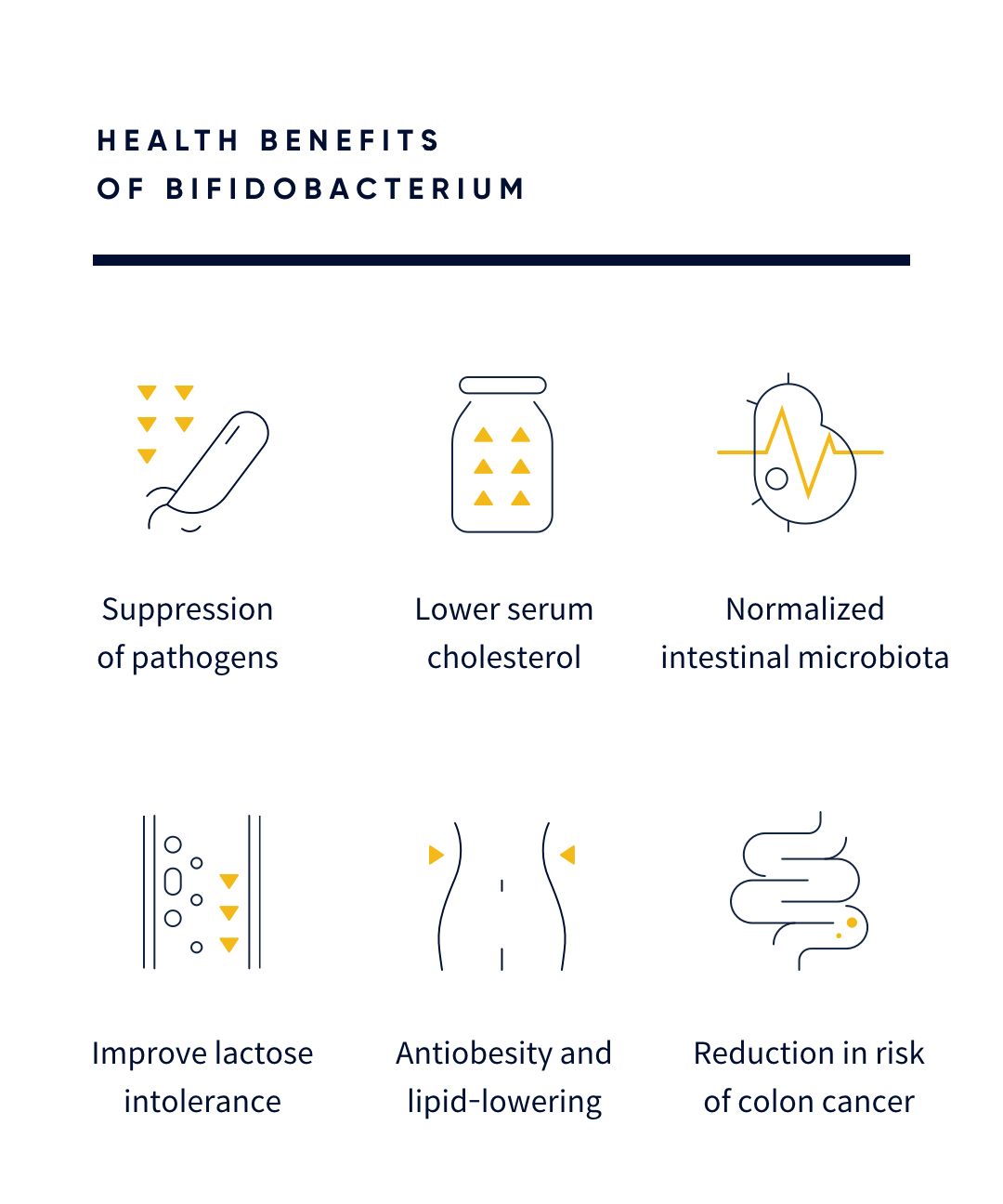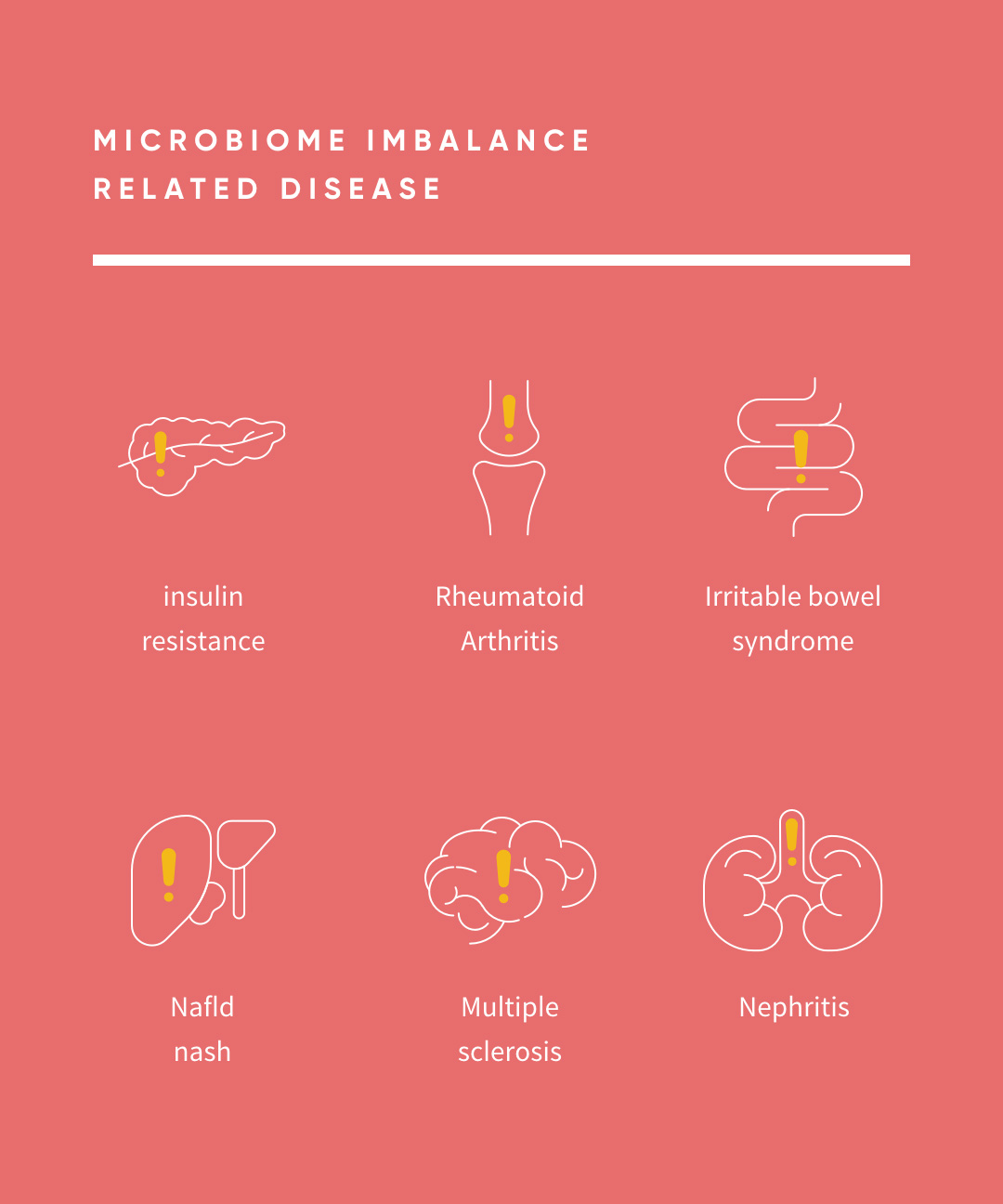Bifidobacterium
The most important health-promoting
bacteria in human gut
What is
Bifidobacterium?
비피도박테리움은 건강한 성인의 장 내에 가장 많이 존재하는 속들(genera) 중의 하나이지만, 특히 모유 수유하는 동안 훨씬 더 두드러집니다. 더욱이, 이들은 인체에 의해 소화하지 못하는 식이 성분의 신진대사에 있어서 중요한 역할을 하며, 면역 체계의 성숙에 있어서도 중요한 역할을 담당하는 것으로 알려져 있습니다.
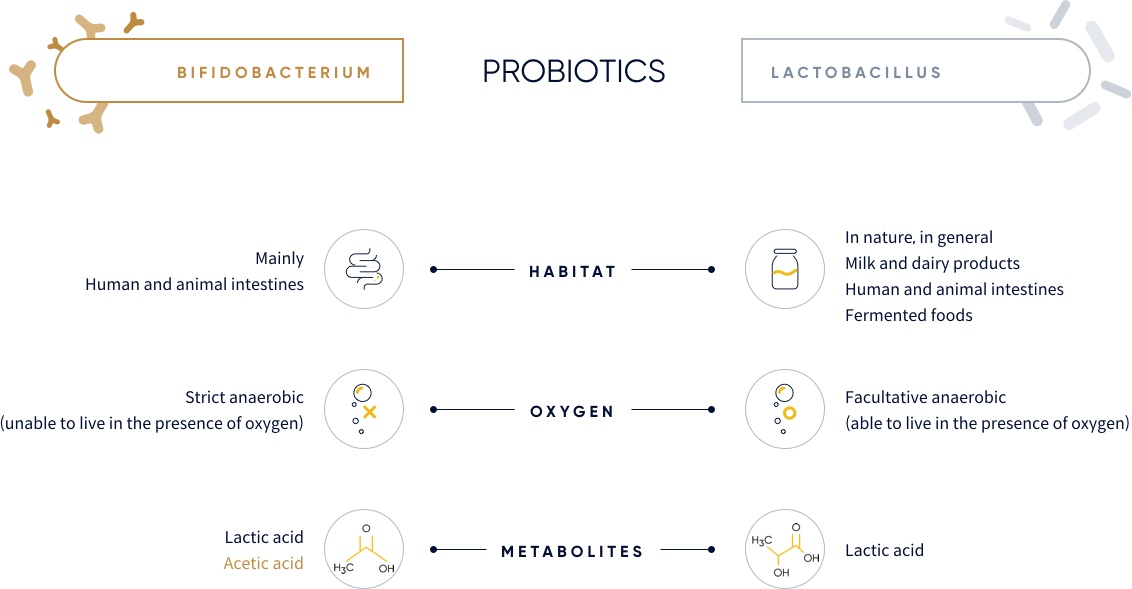
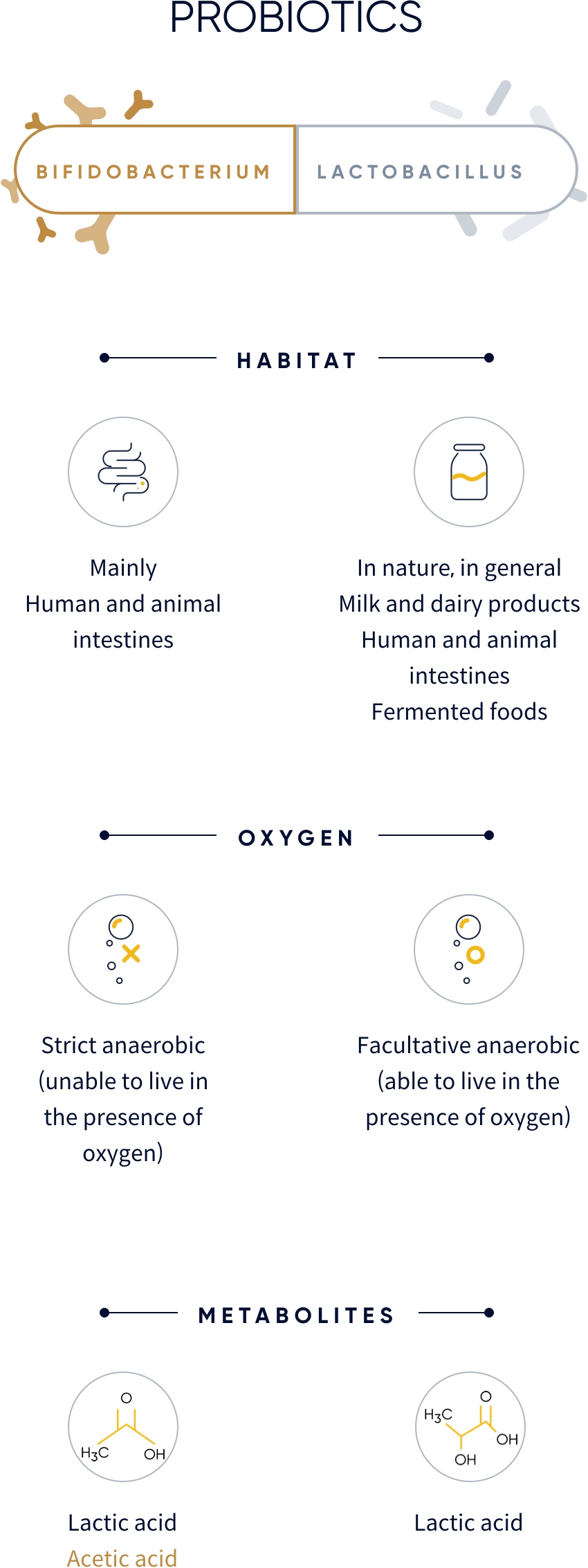
Bifidobacterium in
large intestine
사람의 면역세포들 중 80% 이상이 장 내에 존재하고 있다는 사실은 잘 알려져 있습니다. 그 중에서도 대장은 무산소 환경이며 세균들이 가장 많이 몰려 있는 기관입니다. 비피도박테리움 종은 주로 대장에 높은 수준으로 서식하면서 숙주의 면역세포를 조절해 건강을 증진시켜주는 대표적인 프로바이오틱스입니다.
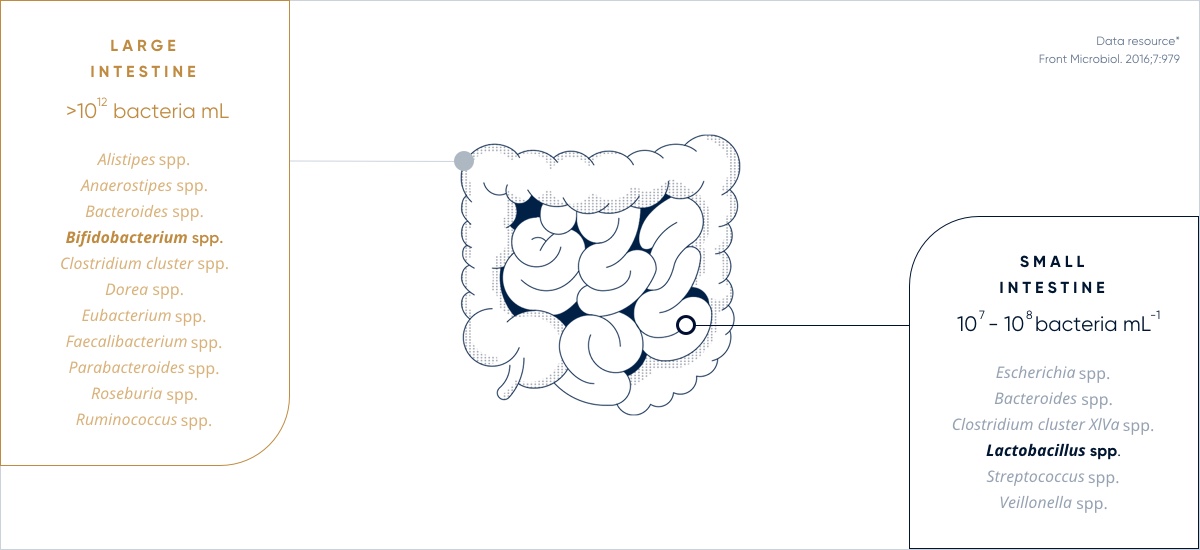
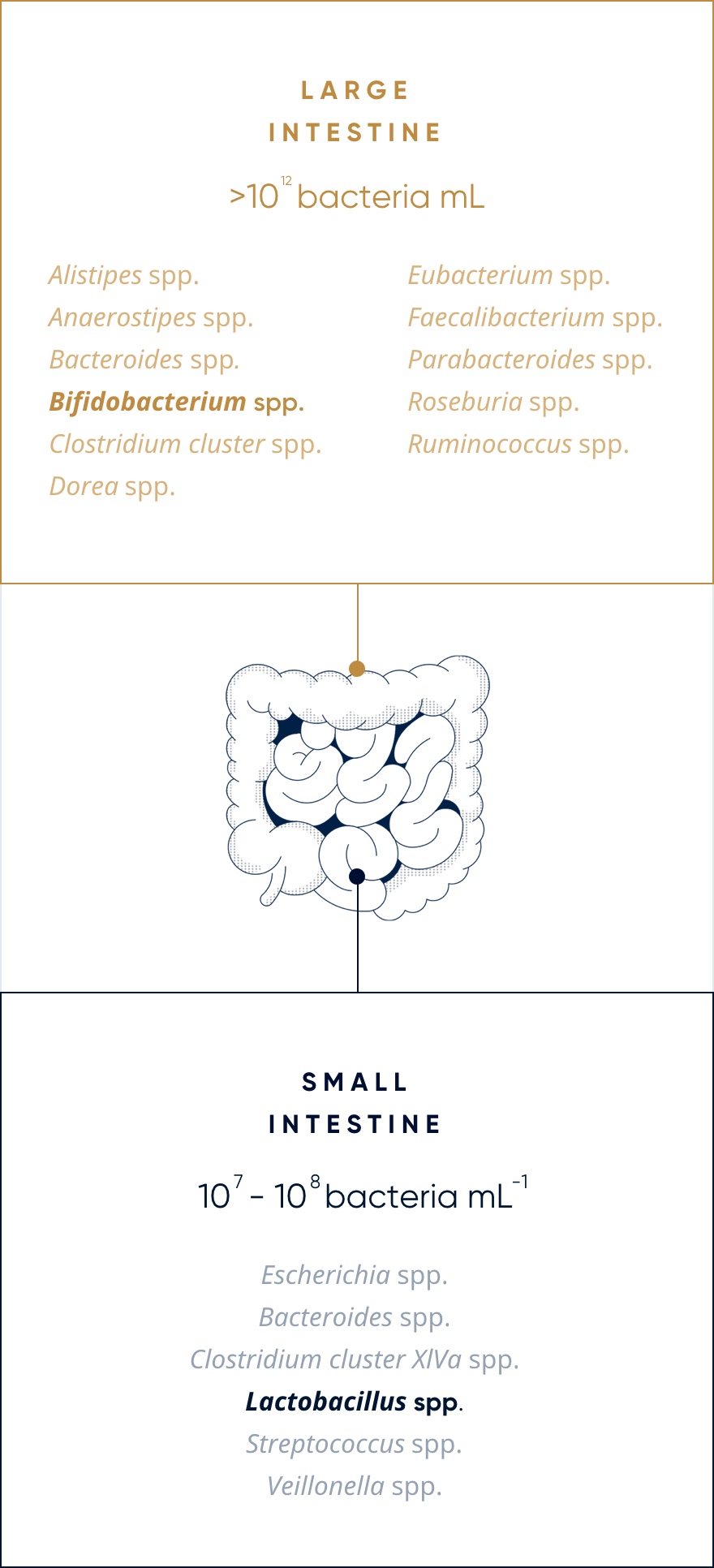
Decreasing
Bifidobacterium
건강한 모유 수유 유아들에서는 장내 세균의 90% 이상이 비피도박테리움으로 이들은 감염 예방과 유아의 건강 유지에 도움을 주고 있습니다. 하지만 이들 유익한 박테리아는 나이가 들면서 지속적으로 감소하게 됩니다.
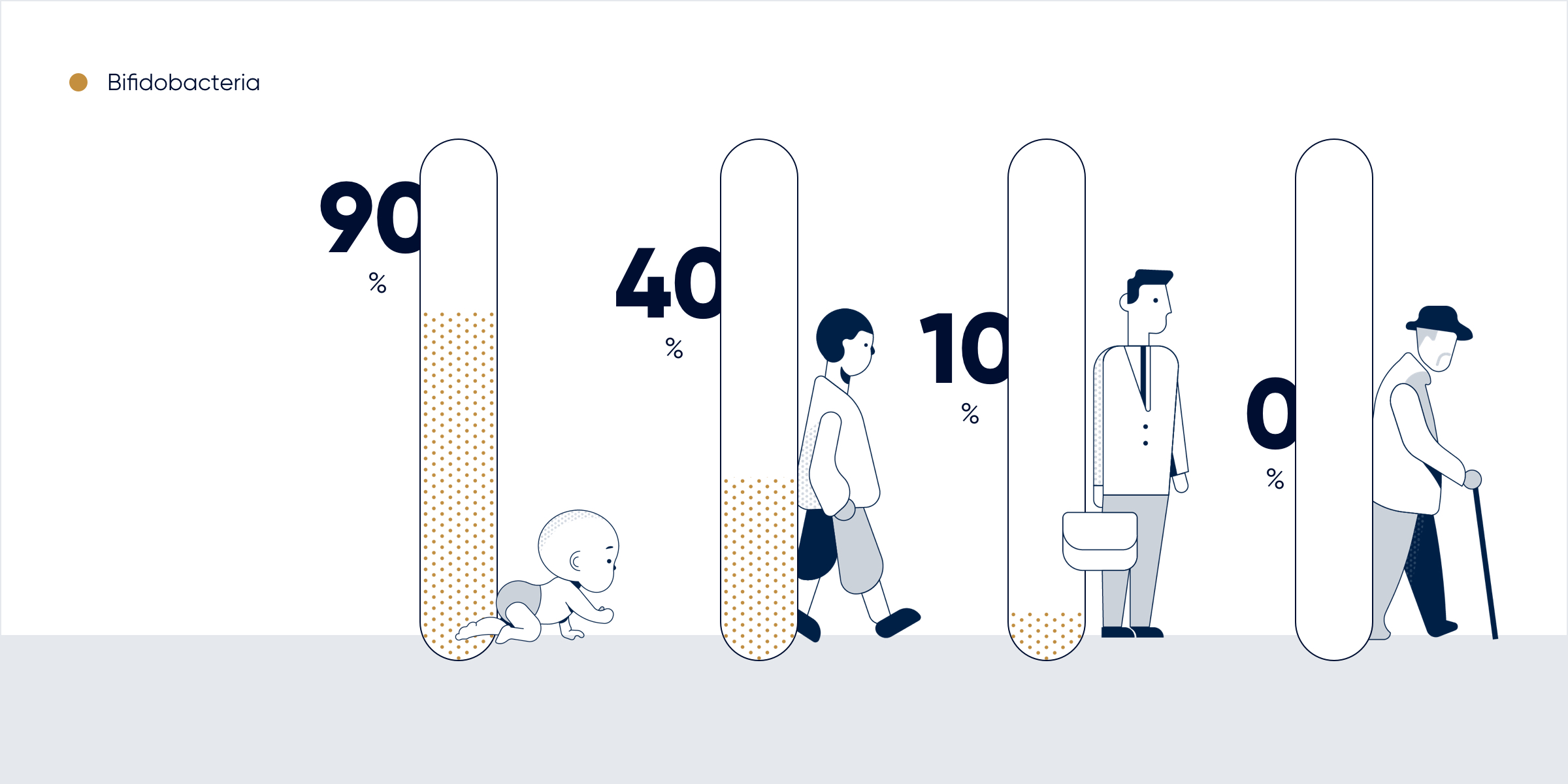
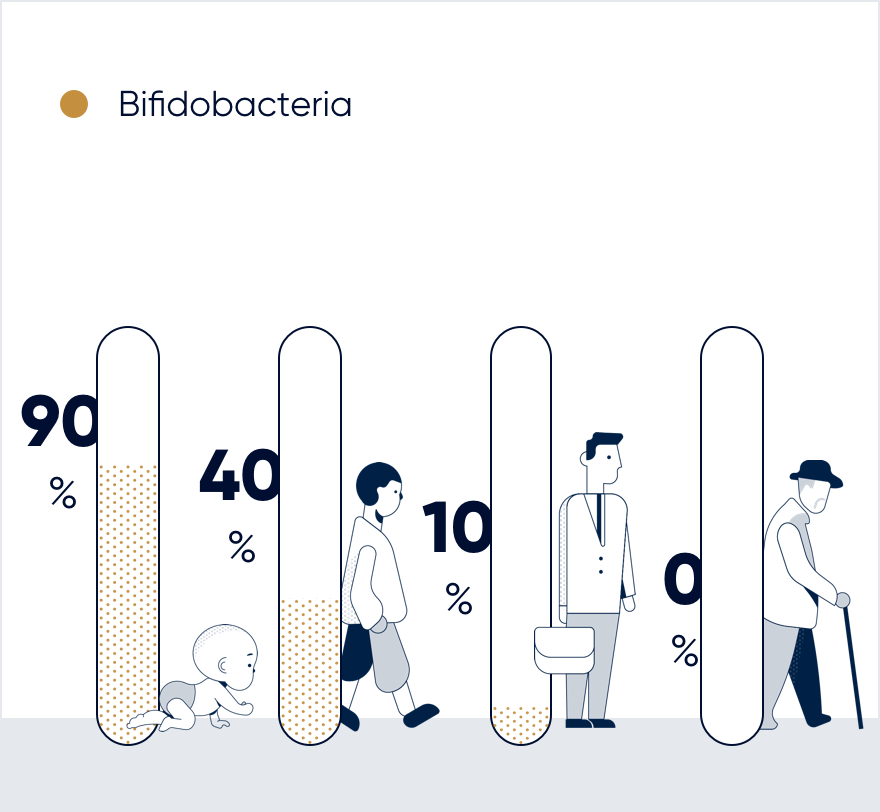
Importance of
Bifidobacterium
마이크로바이옴 연구를 계속해오면서, 우리는 미생물무리에 있어서의 불균형이 여러 가지 종류의 질병을 유발할 수 있다는 사실을 알게 되었습니다. 비피도박테리움의 감소는 사람의 미생물무리가 불균형을 이루게 되는 주요 원인들 중의 하나입니다.
